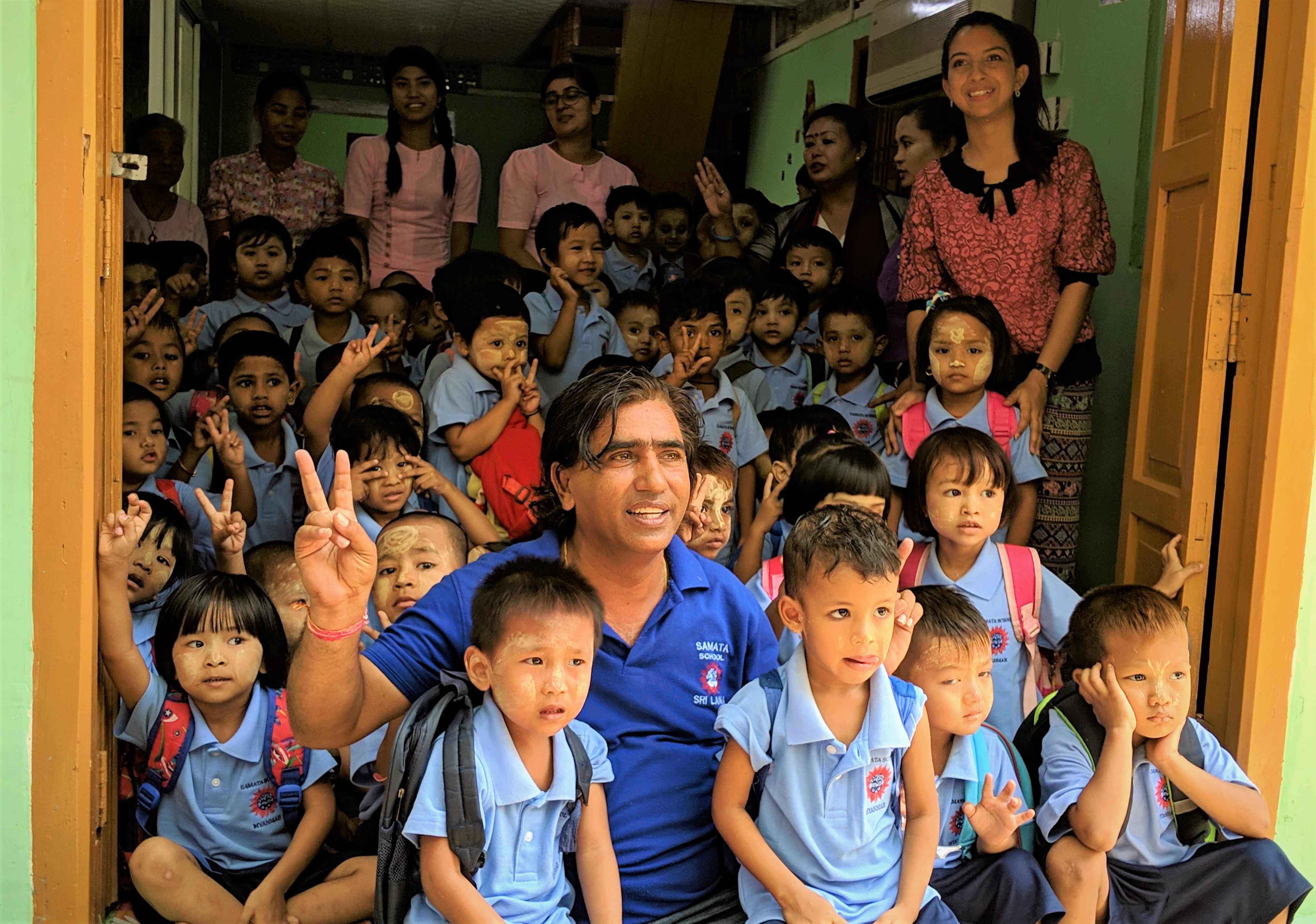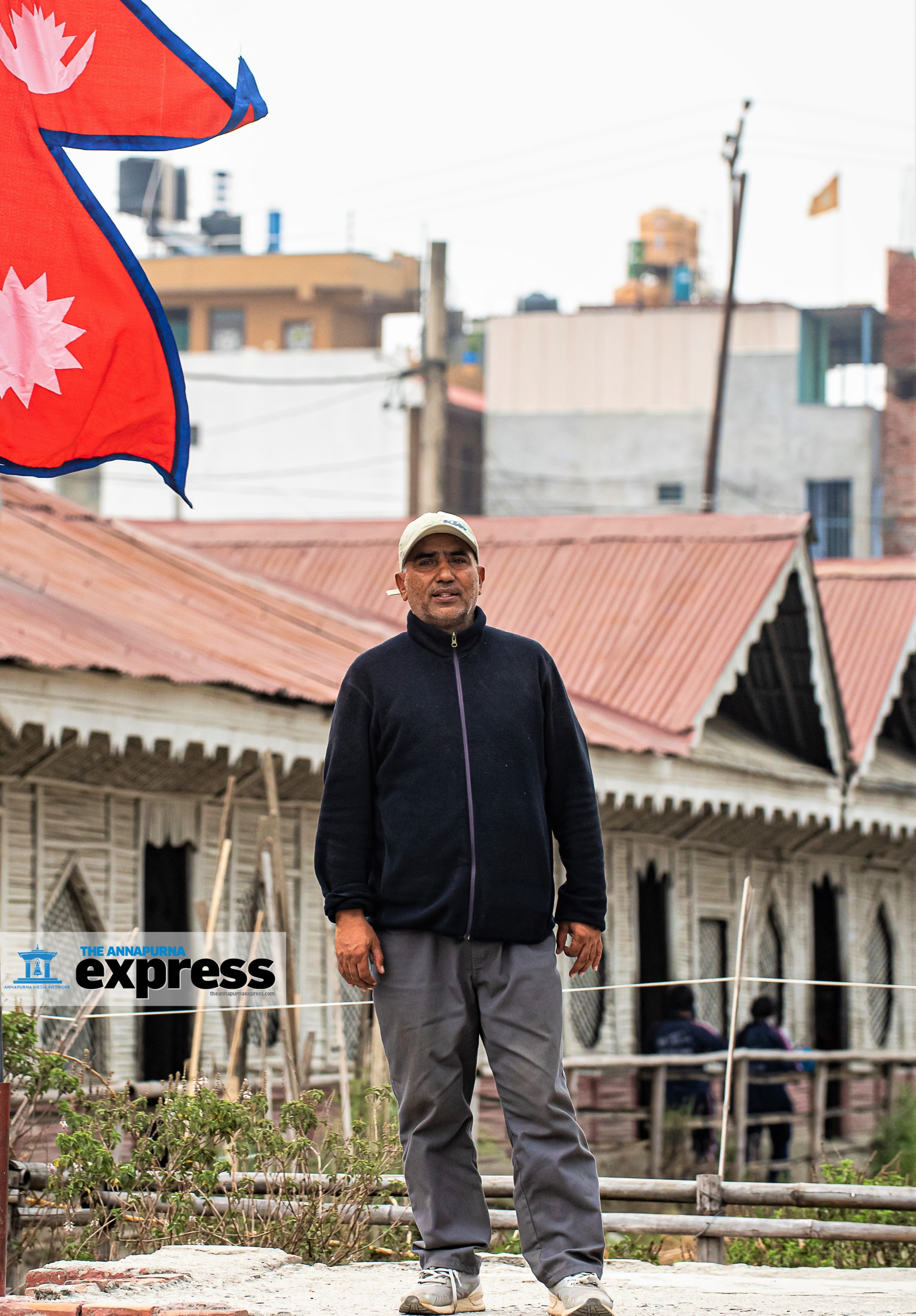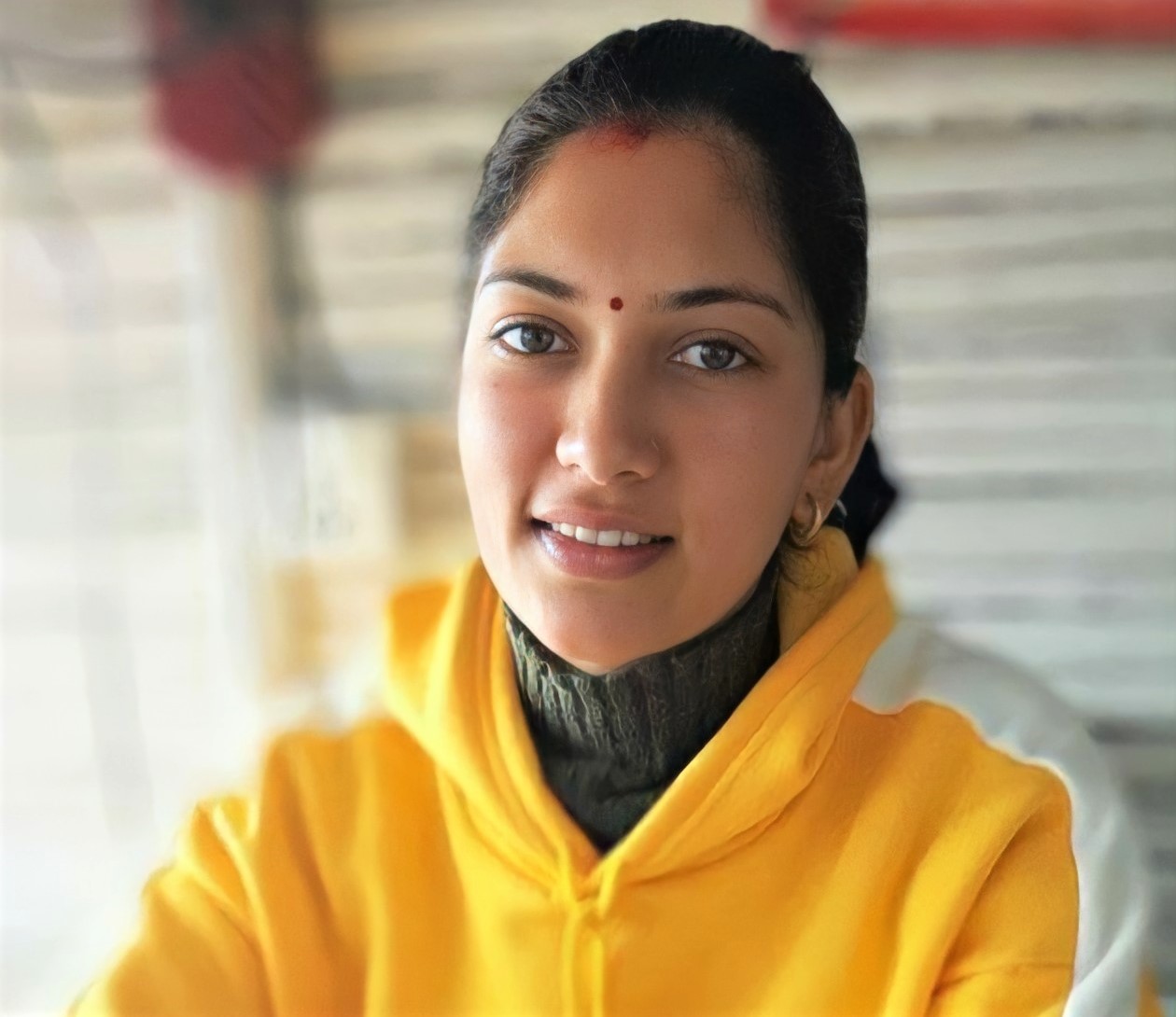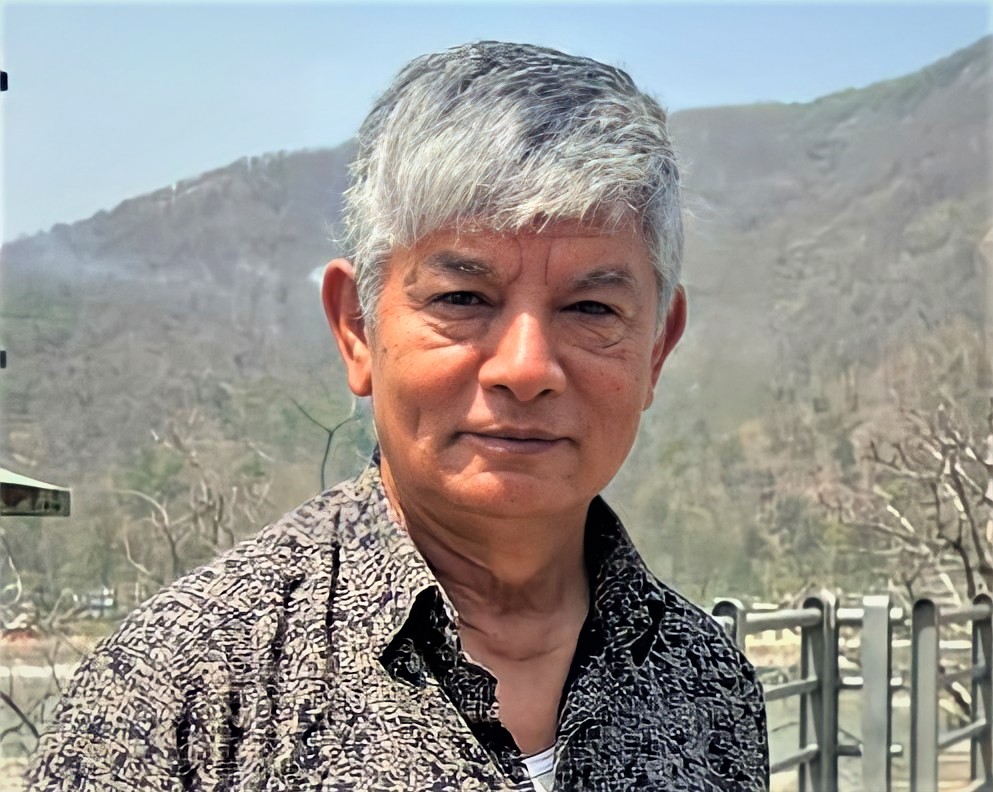Uttam Sanjel: Democratizing education

Quick facts
Born on 24 Jan 1972 in Kathmandu
Went to Chamunda Secondary School, Kathmandu
Graduated in humanities from Pashupati Multiple Campus, Kathmandu
Established the first Samata Sikshya Niketan in 2000 (This was Nepal’s first English-medium school with just Rs 100 in monthly fees)
Husband of Kala Sanjel
Father to Sampada Sanjel

My family ran a store that sold agricultural products. It was a business started by my grandfather. As I didn’t want to take up this family business, I went to Mumbai, India, to work in the film industry. Even though I worked there as an assistant director for almost a decade, my career didn’t go as planned. So I returned to Nepal.
At the time, the country was in the midst of the Maoist insurgency. People, especially the youth, from rural areas were either joining the rebels or fleeing to Kathmandu. Those who had escaped to Kathmandu had no skill or training, which compelled them to work in carpet factories and as wage laborers.
Children of many such workers were begging to help their families. They were also picking up bad habits like smoking and drinking. The only way to help these children, I thought, was through education.
The condition of government schools at the time was awful. Most parents preferred sending their children to private schools, but not everyone could afford their high fees.
I started the Samata Sikshya Niketan (Bamboo school) in 2000 with the goal of providing quality and affordable English-medium education.
I did not offer free education as giving away services for free is virtue-signaling. It is patronizing the disadvantaged people in the garb of charity work. So I began charging Rs 100 a month in fees from parents.
I am also against the quota system. I see it as disrespecting the target communities. What I believe in is equal opportunities to all.
Running the school was a challenge in the early days. We could not manage rent or pay the staff, but we soldiered on as we knew our work was pure and honest.
We had just five students in the first school leaving certificate (SLC) batch, and all of them got distinction.
The exam results of Samata students, who only had to pay Rs 100 for their education, were better than their peers who went to expensive private schools. Samata schools have since continued to produce high-achieving students, and this has affected many private schools.
Despite the odds and many ups and downs, Samata has become a success story. Today, it has schools in all districts of Nepal—80 schools in 77 districts—where education is offered from the nursery level all the way up to the Master’s level.
It now has schools in India, Bangladesh, Sri Lanka, Myanmar, and 20 other countries as well. We plan on expanding to 40 more countries. All the schools follow a curriculum similar to the one used in Nepal.
 Uttam Sanjel with the students of Samata school, Myanmar | Photo: Samata School
Uttam Sanjel with the students of Samata school, Myanmar | Photo: Samata School
Our politicians have ruined Nepal’s reputation on the global stage. Through Samata schools, we are trying to restore its image.
Our education initiative has helped many students. Many of them have successful careers today. Altogether 51 students from our school are doctors, 137 have completed engineering, and a few are chartered accountants. Our students are also doing well academically in Europe and the US. A student from our school got full scholarship in one of the most prestigious colleges in Switzerland. This only goes to show that the level of education in our schools is globally competitive.
I strongly believe that education is the key to personal growth and prosperity. People often confuse prosperity with wealth. Prosperity means being well educated, conscientious, and mindful. An individual can be wealthy, but not prosperous. But those who are prosperous will always have wealth.
That is why I always encourage my students to study hard. Our schools are here to prepare them for the future, to help them build a successful career. We do this by offering high-quality education for a minimal tuition fee.
We know many Nepali parents struggle with finances. If they fail to pay their children’s fees for a few months, private schools throw these children out. Switching to government schools is not easy, as the quality of education and the school environment itself are very different.
Samata schools are consistent with the quality of education they impart, the school environment is great, and, most importantly, they are affordable for everyone.
Most of us don’t realize the purpose of life. Owning a building and living off the rent money is our idea of living. But life should not be limited to such narrow thinking. I want to encourage people to contribute to society.
Establishing an organization is not as difficult as sustaining it. But the more you persevere, the more rewarding the results will get.
Samata Sikshya Niketan has been around for more than two decades and I am glad that I started this organization and managed to keep it going.

About him
Kala Sanjel (Spouse)

He is a kind and helpful person not only because of his contribution to the Samata School. Even his regular days start and end with kindness. He is a person of integrity and has never hurt someone’s self-respect. People these days help others for vested interest, but Uttam genuinely cares about other people.
Ashu KC (Student)

He is a godsend for those parents who cannot afford good schools for their children. I wonder how parents today pay for their children’s education. The so-called top private schools are beyond the reach of even middle-class parents, let alone the poor ones. The fact that Uttam sir has been providing quality education for just Rs 100 a month for such a long time deserves all the praise in the world.
Madan Krishna Shrestha (Colleague/guardian)

Uttam is an obsessed worker. He believes in a skill-based education system and focuses on making students independent enough to lead sustainable lives rather than giving them all the information in the world that they will rarely use. His approach has now reached the international level. He is making Nepal proud.
A shorter version of this profile was published in the print edition of The Annapurna Express on May 12.
related news
Harry Bhandari: An inspiring tale of Nepali immigrant in the US
Sept. 14, 2023, 4:06 p.m.
Baburam Bhattarai: An analysis on Nepal’s underdevelopment
Sept. 4, 2023, 9:36 a.m.
Shyam Goenka: Institutionalizing free press and democracy
Aug. 29, 2023, 7:42 p.m.
Sunil Babu Pant: A guardian of LGBTIQA+ community
March 11, 2023, 10:01 p.m.
Usha Nepal: An inspiration to every working woman
Feb. 25, 2023, 9:42 p.m.
Anupama Khunjeli: A trailblazer banker
Feb. 19, 2023, 12:54 a.m.
Capt Siddartha Jang Gurung: Aviation rescue specialist
Feb. 12, 2023, 1:26 a.m.
Bhuwan Chand: Born to perform
Feb. 4, 2023, 6:36 p.m.










Comments